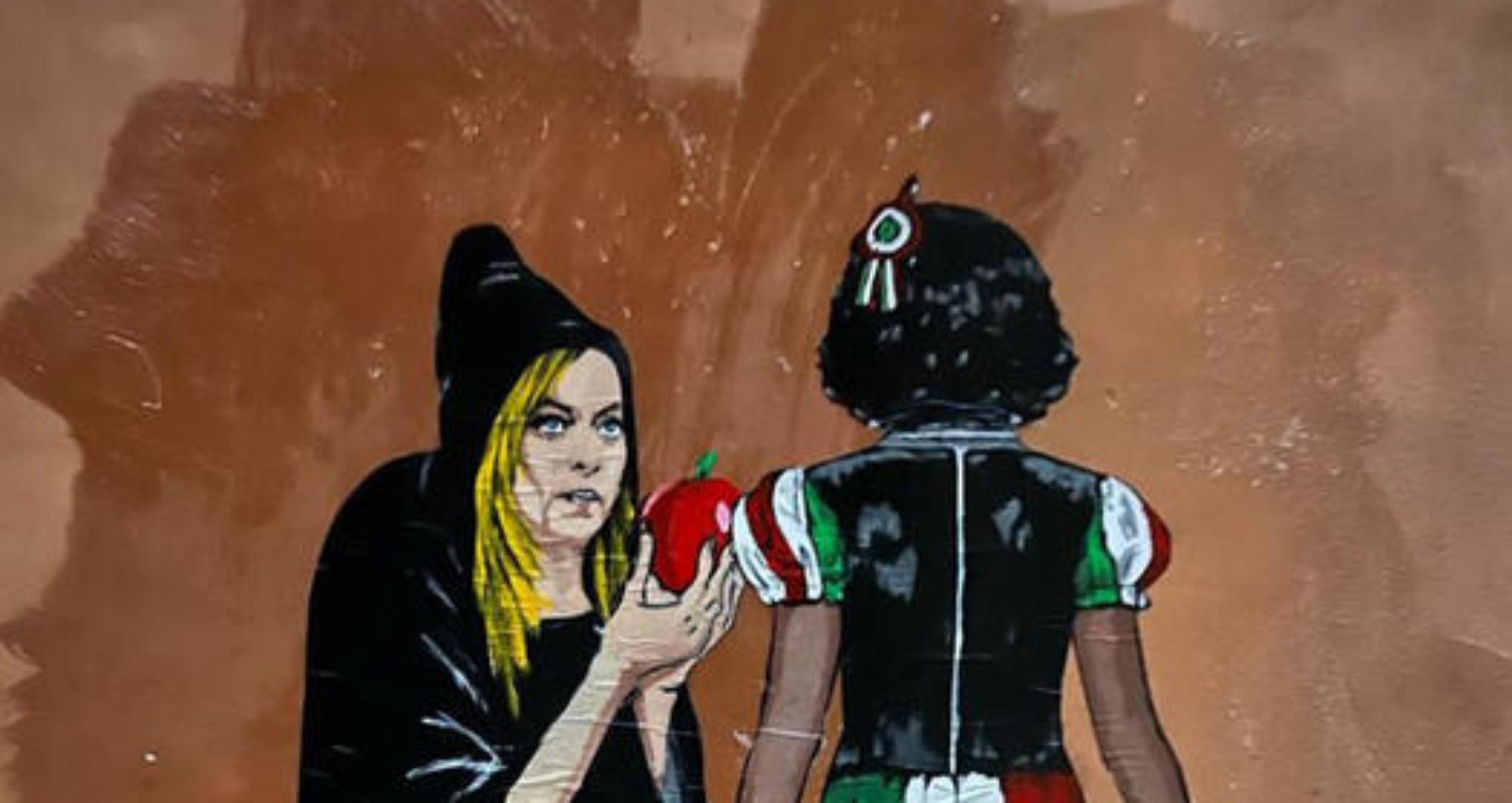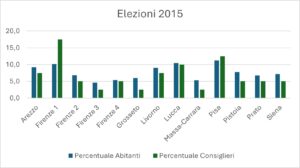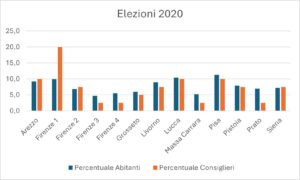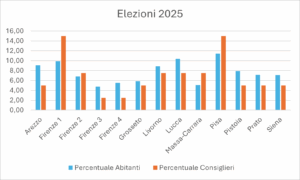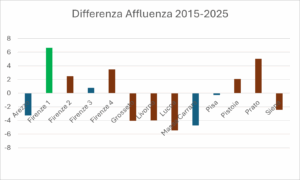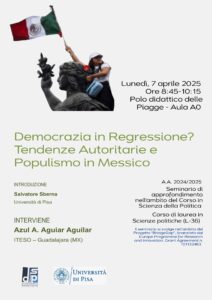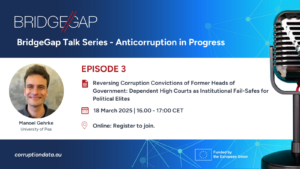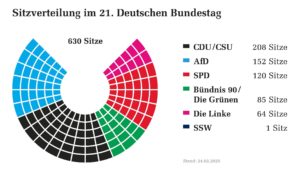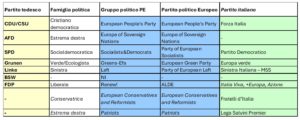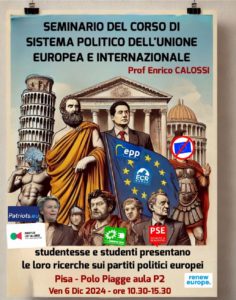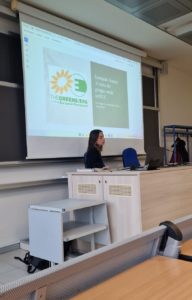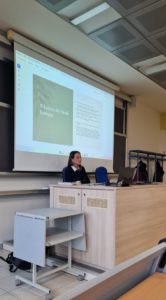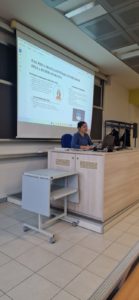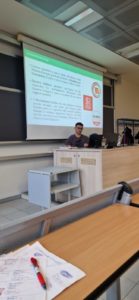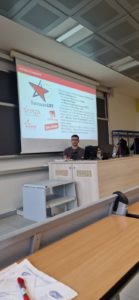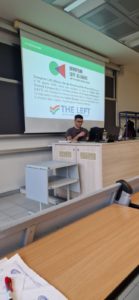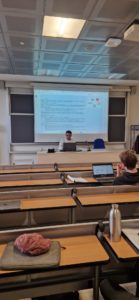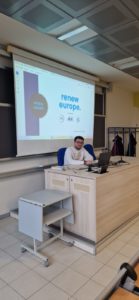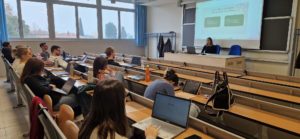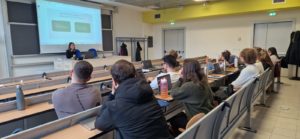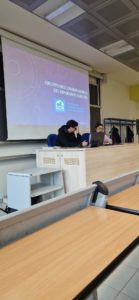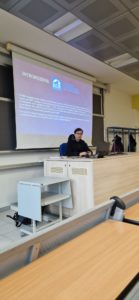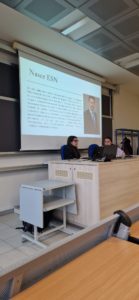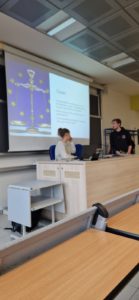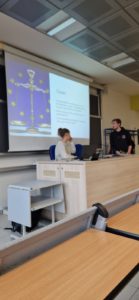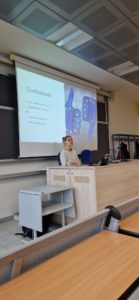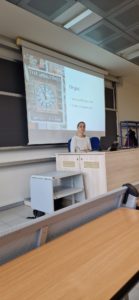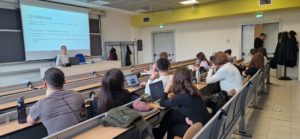Le relazioni tra Italia e Paesi Bassi sono storicamente rilevanti e continuano ad essere rinnovate da rapporti commerciali floridi e dalla comune appartenenza alle istituzioni comunitarie. Pertanto, è da aspettarsi che le recenti elezioni olandesi abbiano raccolto l’attenzione degli osservatori e degli attori politici italiani.
Nella percezione diffusa i Paesi Bassi sono spesso considerati un Paese medio-piccolo. Questo è sicuramente vero da un punto di vista dell’estensione geografica, soprattutto se vengono confrontati con i giganti extra-europei; ma se si prendono in considerazione altri aspetti, come la ricchezza prodotta, i Paesi Bassi diventano assolutamente più rilevanti. Infatti, nella graduatoria mondiale occupano le 18esima posizione, mentre nell’Unione Europea sono quinti, collocandosi subito dopo i quattro grandi della UE (Germania, Francia, Italia e Spagna) ma superando la Polonia, nonostante quest’ultima abbia una popolazione più estesa. Inoltre, quella olandese rappresenta la sesta spesa militare dei Paesi dell’Unione e, anche da un punto di vista della popolazione, i Paesi Bassi si collocano nella parte alta della classifica, rappresentando il settimo Paese più popolato della UE. Inoltre, sempre per quanto riguarda l’integrazione europea, il Paese dei tulipani ha fatto parte del primo sestetto della CECA ed è, ovviamente, Paese fondatore dell’Unione; ha espresso numerosi politici delle istituzioni comunitarie, a partire dal primo presidente della Banca Centrale Europea, Wim Duisenberg. Pertanto, il ruolo dei Paesi Bassi a livello mondiale e, soprattutto, a livello comunitario è tutt’altro che trascurabile. Infine, sottolineando le relazioni tra Italia e Paesi Basi si può ricordare come quest’ultimo sia il nono sbocco commerciale dei prodotti italiani (il sesto tra i partner UE) e si collochi al settimo posto come numero di visitatori stranieri nel Belpaese.
Le relazioni transnazionali tra i partiti politici
L’azione dei partiti politici si integra costantemente in una rete di relazioni internazionali con organizzazioni simili (i “cosiddetti sister parties”), superando il contesto nazionale. Questo network assolve alla fondamentale necessità di condividere schemi strategici, coordinare azioni istituzionali (come le campagne internazionali) e affinare le élite di governo. Tale dinamismo trova la sua massima espressione nelle grandi famiglie politiche internazionali e, in modo sistematico e pervasivo, nel sistema normativo e finanziario dell’Unione Europea. Per gli attori politici dell’UE, i percorsi di cooperazione si sviluppano tramite le Internazionali globali (ad esempio, le organizzazioni Socialiste o Liberali) e, in modo ancora più rilevante per gli attori partiti, nelle istituzioni supportate dall’Unione: i partiti politici europei e, in particolare, i gruppi parlamentari del PE. Questi ultimi, avvantaggiati da una più ampia disponibilità di risorse e da una legittimità istituzionale percepita come superiore, rappresentano spesso l’ambito privilegiato per la concertazione transfrontaliera, affiancati dalla cooperazione bilaterale diretta. Il risultato delle elezioni legislative anticipate olandesi, svoltesi il 29 ottobre 2025, ha fornito una nuova e significativa conferma empirica su come tali legami transnazionali possano influenzare le reazioni e i posizionamenti differenti tra i partiti partner. In particolare, il testa a testa tra il centrista-liberale D66 di Rob Jetten (affiliato a Renew Europe) e l’estrema destra del PVV di Geert Wilders (membro di Patrioti per l’Europa) ha suscitato reazioni varie tra gli omologhi europei. Tale esito ha offerto un contesto favorevole per focalizzarsi su come i legami bilaterali tra i partiti italiani e olandesi abbiano generato valutazioni e risposte diverse nelle rispettive capitali, evidenziando che i sister parties utilizzano l’esito elettorale nazionale per legittimare e interpretare la propria strategia politica interna e l’allineamento del proprio blocco europeo.
D66, PVV e la nuova geografia politica olandese
L’esito delle elezioni legislative del 2025 rappresenta un momento di svolta nel panorama politico olandese, offrendo un caso rilevante per comprendere le dinamiche di riallineamento e frammentazione partitica in Europa occidentale. Un primo interessante dato è che l’affluenza registrata in queste elezioni è risultata in linea con quella delle legislative del 2023.
Il Paese sarebbe dovuto tornare alle urne solo nel 2028, ma la crisi del governo Schoof sul tema dell’immigrazione e il ritiro della fiducia da parte del PVV hanno portato allo scioglimento anticipato del Parlamento e alla convocazione di nuove elezioni.
Guardando ai risultati definitivi, emergono chiaramente due vincitori: i liberali dei Democratici 66 (D66) e il nazionalista Partito della Libertà (PVV). D66 compie un balzo in avanti notevole, guadagnando 17 seggi rispetto al 2023 e raggiungendo il 16,9%. Il PVV, al contrario, pur perdendo 11 seggi e scendendo al 16,7% rimane comunque primo a 26 seggi, come D66.
Subito dietro troviamo il liberale Partito Popolare per la Libertà e la Democrazia (VVD), che si piazza al terzo posto con il 14,2% e 22 seggi: un risultato deludente, il peggiore dal 2006, con una perdita di due seggi. L’alleanza tra laburisti e verdi (GroenLinks-PvdA) ottiene il 12,8% e 20 seggi, perdendone 5 rispetto alla legislatura precedente e andando ben al di sotto dei sondaggi, che la davano stabilmente tra i 25 e i 30 seggi. Questo risultato ha portato, l’ex-commissario europeo, Frans Timmermans ad annunciare le sue dimissioni dalla leadership. Al contrario, il centrista Appello Cristiano Democratico (CDA), guidato da Henri Bontebal, vive una vera rinascita: con l’11,8% conquista 18 seggi, ben 13 in più rispetto al 2023.
Tra i partiti di destra minori, il partito “Risposta Corretta 2021” (JA21) stupisce ottenendo il miglior risultato della sua storia, con il 6% e 9 seggi, ben otto in più rispetto alle elezioni precedenti; il Forum per la Democrazia (FvD) sale al 4,5% e conquista 7 seggi, con un aumento di 4. Complessivamente, dunque, la destra laica dimostra di accrescere la sua presenza, grazie soprattutto ai su-menzionati partiti minori, che recuperano larga parte della perdita di PVV.
Ancora tra i partiti più piccoli, il Movimento Civico Contadino (BBB) subisce un netto calo, scendendo al 2,7% e riducendosi a 4 seggi. Il partito della minoranza turca, DENK, il religioso SGP, il Partito degli Animali (PvdD) e l’Unione Cristiana (CU) rimangono ciascuno con 3 seggi, mentre il Partito Socialista scende anch’esso a 3, perdendone 2. Il partito dei pensionati, 50PLUS, rientra in Parlamento con 2 seggi, mentre il partito europeista Volt ne perde uno dei due che aveva. Il crollo più significativo è però quello del partito centrista Nuovo Contratto Sociale (NSC), che perde tutti i suoi 20 seggi: una sconfitta storica, la più grande dopo quella Partito Laburista che nel 2017 perse 29 seggi.
Nel complesso, i risultati mostrano un chiaro segnale di sfiducia nei confronti dei partiti che componevano l’ultimo governo, tutti penalizzati in misura variabile. L’elettorato sembra aver reagito alla mancanza di coesione interna della coalizione, specialmente su temi molto sensibili come la politica d’asilo e le sanzioni contro Israele per la guerra a Gaza.
In un quadro così frammentato, è lecito attendersi che servirà molto tempo prima di formare un nuovo governo. Il 4 novembre D66, come partito più votato, ha indicato Wouter Koolmees come “scout” incaricato di avviare le consultazioni. Su suo suggerimento, D66 e CDA hanno aperto negoziati sostanziali, guidati dagli informatori Hans Wijers e Sybrand Buma. Tuttavia, il processo ha subito un intoppo quando è trapelato un messaggio privato in cui Wijers criticava Dilan Yeşilgöz, leader del VVD, costringendolo alle dimissioni. Intanto, lo stesso Geert Wilders, leader del PVV, ha riconosciuto che difficilmente il suo partito farà parte del prossimo governo.
Le relazioni tra i partiti italiani e quelli nederlandesi
Attualmente i partiti olandesi presenti sia nel Parlamento olandese che nel PE si collocano in sette gruppi: in sei di questi trovano corrispondenti partiti italiani.
Il Partito degli Animali condivide il gruppo The Left con il Movimento 5 Stelle e Sinistra Italiana. Volt Paesi Bassi e Groen Links trovano gli eletti di Europa Verde nel gruppo Verdi-Ale. Il Partito Laburista (PvdA) ed il Partito Democratico (PD) condividono la membership nel gruppo Socialista e Democratico. Democratici 66 e VVD, data l’appartenenza all’ALDE, sono legati ad Azione, +Europa e Radicali Italiani (Italia Viva è, infatti, membro del Partito Democratico Europeo) anche se i partiti liberali italiani non esprimono europarlamentari. CDA, BBB e trovano Forza Italia nel gruppo del PPE. SGP aderisce al gruppo dei Conservatori, così come Fratelli d’Italia. Il Partito per la Libertà (PVV) di Geert Wilders è membro dei Patrioti per l’Europa insieme alla Lega di Matteo Salvini. Infine, il Forum della Democrazia (FvD) si trova nell’Europea delle Nazioni Sovrane (ESN), nel quale però non si trovano membri italiani.
Tabella 1: Partiti olandesi e partiti italiani nelle affiliazioni comuni. *GL e PvdA si sono presentati in coalizione.
| Partito olandese |
Famiglia politica |
Gruppo politico PE |
Partito politico Europeo |
Partito italiano |
| PvdD |
Sinistra |
Left |
Animal Politics EU |
M5S, SI, PRC |
| Volt NL |
Verde/Ecologista |
Greens-Efa |
Volt |
EV, Volt Italia |
| GL* |
Verde/Ecologista |
Greens-Efa |
European Green Party |
EV, Volt Italia |
| PvdA* |
Socialdemocratica |
S&D |
PES |
PD, PSI |
| D66 |
Liberale |
Renew Europe |
ALDE |
IV, +E, Az, RI |
| 50 PLUS |
Liberale |
– |
EDP |
IV, +E, Az, RI |
| VVD |
Liberale |
Renew Europe |
ALDE |
IV, +E, Az, RI |
| CDA |
Cristiano-democratica |
EPP |
EPP |
Forza Italia, UdC, NM |
| BBB |
Cristiano-democratica |
EPP |
– |
Forza Italia, UdC, NM |
| SGP |
Conservatrice |
ECR |
ECPP |
Fratelli d’Italia |
| PVV |
Estrema Destra |
Patriots |
Patriots |
Lega |
| FvD |
Estrema Destra |
– |
ESN |
– |
| CU |
– |
– |
ECPP |
– |
| SP |
– |
– |
– |
– |
| JA21 |
– |
– |
– |
– |
| DENK |
– |
– |
– |
– |
Fonte: elaborazione degli autori
Le reazioni dei partiti italiani
Molto probabilmente i Democratici 66 esprimeranno il prossimo Primo Ministro. Nel mentre, la coalizione di Centro-sinistra GL-PvdA, guidata dall’ex Vicepresidente esecutivo della Commissione Europea Frans Timmermans, e l’estrema destra del Partito per la Libertà guidato dal nazionalista Geert Wilders perdono consensi, risultando sconfitti. Ciò ha portato, in Italia, ad un silenzio da parte dei partiti di sinistra e di destra, contemporaneamente, gli unici ad esultare sono stati i partiti liberaldemocratici italiani.
Come già ribadito nessun partito di maggioranza (Fratelli d’Italia, Forza Italia, Lega, Noi Moderati) ha parlato dei risultati dei rispettivi “sister parties”. Non si è espresso nemmeno il Vicepremier Matteo Salvini che ha coltivato un rapporto stretto con Wilders (PVV), invitandolo anche alla kermesse della Lega a Pontida nel 2024.
Passando ora al mondo progressista italiano, per quanto concerne i partiti affiliati a The Left (Sinistra Italiana, Rifondazione Comunista, Movimento 5 Stelle) nessuno ha espresso sostegno al Partito Socialista o al Partito degli Animali, probabilmente a causa dei pessimi risultati elettorali di entrambi. Stessa cosa avviene per Europa Verde nei confronti di GroenLinks, entrambi afferenti al gruppo Verdi-ALE.
Né sui profili social della Segretaria nazionale Elly Schlein, né sui profili ufficiali del Partito Democratico si ritrovano riferimenti agli eventi olandesi. Tuttavia, Brando Benifei, europarlamentare PD, ha augurato “Un grande in bocca al lupo” al leader della coalizione tra Verdi e Laburisti affermando che quest’ultimo “propone un programma coraggioso per rilanciare la sanità pubblica, lo sviluppo sostenibile e lo stato sociale”, passando poi a criticare Wilders, “alleato di Salvini” che affermava “mai un centesimo per gli Italiani durante la crisi di Covid-19”. C’è da notare, tuttavia, come non abbia parlato dei risultati elettorali.
Altro importante esponente dem ad esporsi sulle elezioni è stato l’ex Presidente del Consiglio ed ex Commissario europeo per gli affari economici Paolo Gentiloni, il quale non ha espresso commenti verso il Partito del Lavoro olandese (che, come il PD, siede nei Socialisti e Democratici), ma anzi si è congratulato con Rob Jetten (D66): “L’onda sovranista si ferma in Olanda, dove era stata più alta. Grande risultato dei liberali progressisti di D66. Una bella giornata per l’Europa”. La presa di posizione di Gentiloni nei confronti dei liberali olandesi dimostra ancora una volta come nel PD siano presenti anime diverse, una socialdemocratica, ideologicamente vicina ai partiti aderenti al PES, ed un’altra che guarda più al centro.
Tra i liberali italiani Azione esprime congratulazioni ai due partiti liberali, sia i progressisti Democratici 66 sia i conservatori VVD, che all’interno Parlamento Europeo siedono nel gruppo centrista Renew Europe. Il leader di Azione, Carlo Calenda, si esprime così: “Le elezioni nei Paesi Bassi premiano i liberali. D66 e VVD, entrambi appartenenti alla famiglia di Renew Europe, ottengono un enorme successo, dando una spallata ai populisti di destra di Wilders, amici di Salvini”. Calenda parla poi di “una speranza per una politica seria basata sui fatti e sul sentimento europeista. Un progetto da riprodurre anche in Italia come stiamo facendo da anni”. Conclude con un monito finale: “si può fare, si deve fare!”. Anche la Vicepresidente di Azione, l’on. Giulia Pastorella esprime congratulazioni ad entrambi i partiti liberali: “L’Olanda dovrebbe essere un esempio per noi che crediamo in certi valori, perché un Paese dove diverse anime del liberalismo convivono competendo e offrono una solida prospettiva liberale all’elettorato”.
+Europa e Radicali Italiani, data la vicinanza ideologica, esultano solo per i Democratici 66, omettendo il risultato del VVD. Il Segretario di +Europa Riccardo Magi si esprime così: “Una bellissima notizia: sono in testa i liberali progressisti”. Per poi concludere il commento con un attacco alla destra italiana: “Questa notizia segna un punto per noi dirimente: si può vincere senza fare nessun compromesso con i sovranisti antieuropeisti alla Meloni”. Matteo Hallissey, Presidente di +Europa e dei Radicali Italiani, utilizza un linguaggio ironico e colorito per parlare ai giovani: “L’estrema destra è imbattibile? Col c***o! Si batte con una politica che fa delle libertà la risposta ai problemi della società. […] E se si potesse fare anche in Italia?”. Hallissey, essendo del 2003, fa inoltre, chiaramente, riferimento alla giovane età del leader dei Democratici 66 (38 anni), auspicando un rinnovamento generazionale nel mondo politico italiano.
Infine, nel mondo liberale italiano, si esprime anche l’on. Luigi Marattin, leader del Partito Liberaldemocratico (forza politica nata l’8 marzo 2025), commentando così: “Sembrava impossibile fermare l’irresistibile l’ascesa del populismo di Wilders; se qualcuno poteva riuscirci sembrava Timmermans, con le sue follie ideologiche verdi. I liberali hanno vinto, Wilders ha perso e Timmermans si è dimesso. Si può fare!”. Dunque, il neosegretario non solo attacca l’estrema destra ma esprime anche perplessità per il programma di GL-PvdA.
Stupisce l’assenza di dichiarazioni da parte di Matteo Renzi o di altri esponenti di Italia Viva.
Infine, è importante notare come si sia espresso anche il Partito Gay, data l’omosessualità dichiarata del futuro premier olandese, e di cosa ciò possa comportare alla comunità LGBTQIA+. “Rob Jetten è un segnale di speranza per tutta l’Europa. Ecologista e Liberale, capace di coniugare la difesa dell’ambiente con l’impegno per l’uguaglianza e la libertà delle persone LGBTQIA+”.
Destreggiarsi tra gli alleati sconfitti e i risultati degli avversari
In definitiva, le reazioni dei partiti italiani sembrano rivelare molto più delle loro stesse parole. Le elezioni olandesi hanno agito come uno specchio deformante: hanno ingrandito gli entusiasmi quando i risultati premiavano gli alleati europei, ma hanno generato un silenzio quasi imbarazzato quando a prevalere erano gli sconfitti o i competitor interni alla stessa famiglia politica. Ciò che emerge, con una nitidezza difficilmente ignorabile, è la fragilità del rapporto tra i partiti italiani e le rispettive famiglie europee. Le reazioni alle elezioni olandesi assumono il sapore di una politica che seleziona ciò che conviene e rimuove ciò che disturba, sacrificando ogni occasione di dibattito europeo a favore di dinamiche interne.
Da un punto di vista comunicativo, appare evidente che per i partiti che condividono la stessa collocazione europea è facile condividere gli entusiasmi quando i risultati sono positivi. Questo è il caso di Azione, +Europa e Radicali Italiani verso i Democratici 66, con i quali condividono l’appartenenza al gruppo parlamentare del PE (Renew Europe) e al partito politico europeo (ALDE). Quando però i risultati sono negativi e ci si trova a dover dire qualcosa (come avviene per PD, AVS, M5S, FI, FdI, Lega) si cerca di minimizzare la sconfitta o nel caso olandese si tace completamente sulla vicenda. Appare evidente una dinamica ricorrente: i partiti italiani tendono a leggere le elezioni estere attraverso il filtro delle proprie priorità interne. Le consultazioni olandesi lo dimostrano chiaramente: entusiasmo quando a prevalere è chi appartiene alla stessa famiglia politica europea; silenzio quando a perdere sono gli alleati o quando l’esito rischia di generare paragoni scomodi sul piano domestico. Questo atteggiamento non solo limita la profondità del dibattito italiano sulle trasformazioni in atto in Europa, ma rivela anche una scarsa propensione a costruire una visione realmente condivisa del futuro europeo.
Complessivamente, dunque, si può notare che l’attenzione da parte della politica italiana verso i risultati olandesi sia stata del tutto inferiore rispetto alle attese e alle dimensioni stesse dei Paesi Bassi e delle relazioni italo-olandesi. Pertanto, la distanza tra Roma e L’Aia, almeno a livello politico, non appare dunque geografica, ma soprattutto culturale, che, almeno dalla prospettiva italiana, oscilla tra il silenzio e il disinteresse.
Gianmarco Avantaggiato
Piera Morrone
Giorgio Rizzo
Enrico Calossi
